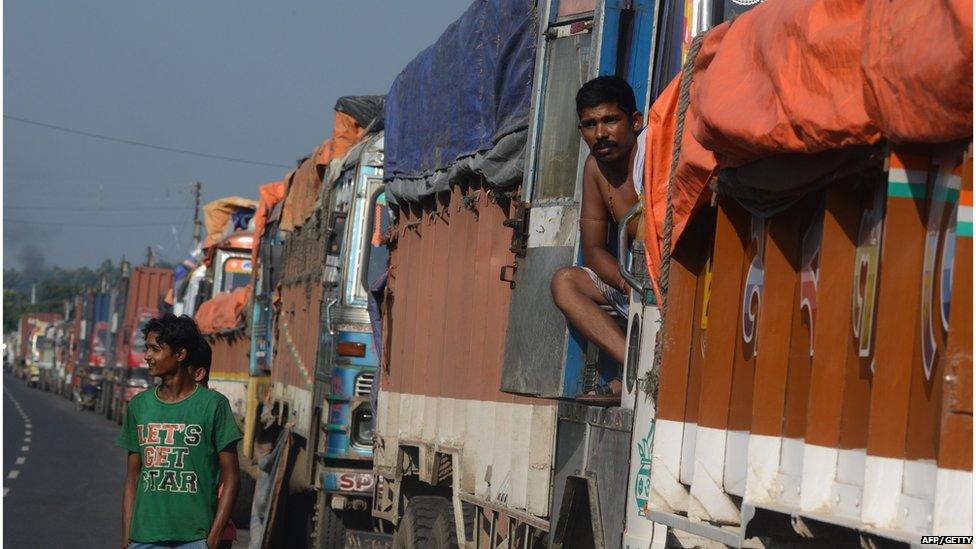UN: Nepal blockade puts millions of children at risk
- Published
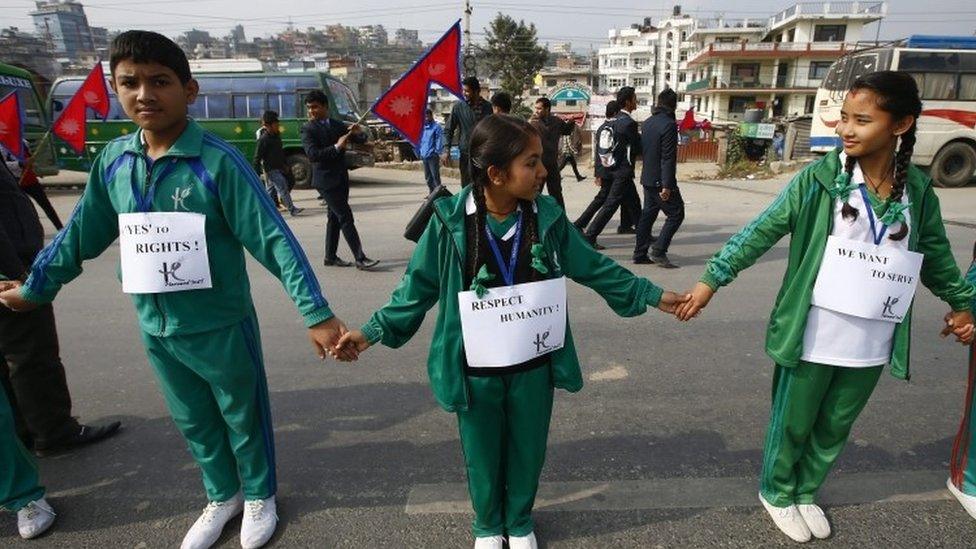
Children are being hardest hit by the embargo, Nepal says
Shortages of fuel, food, medicines and vaccines are putting more than three million infants at risk of death or disease as winter begins in Nepal, the UN children's fund (Unicef) has warned.
It said, external the situation had been worsened by more than two months of political unrest in the south of the country.
A blockade has severely hit the import of key goods by land from India.
The blockade is led by ethnic communities angered by Nepal's recently promulgated new constitution.
The Madhesi communities say the new constitution does not represent them properly.
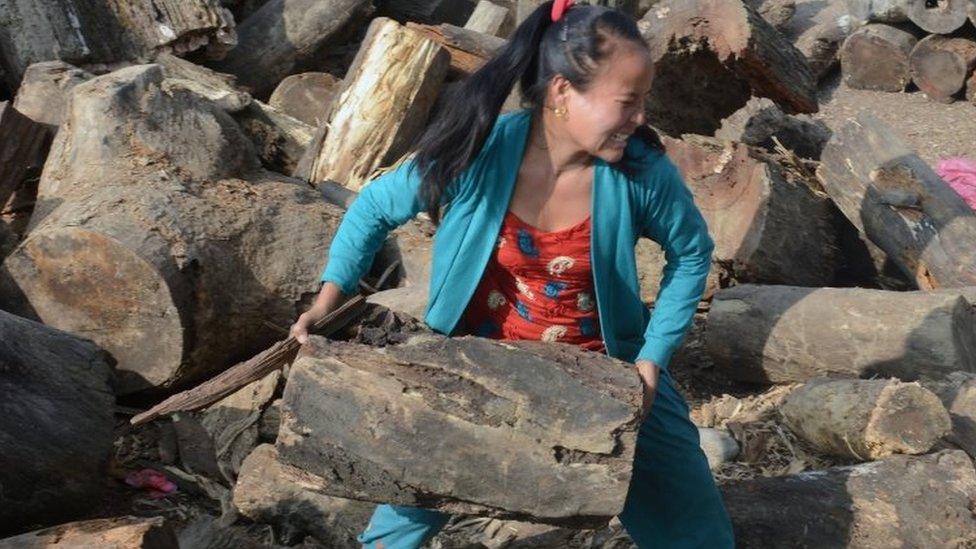
There are fears that Nepal's rising dependence on firewood - triggered by the fuel crisis - is increasing indoor pollution
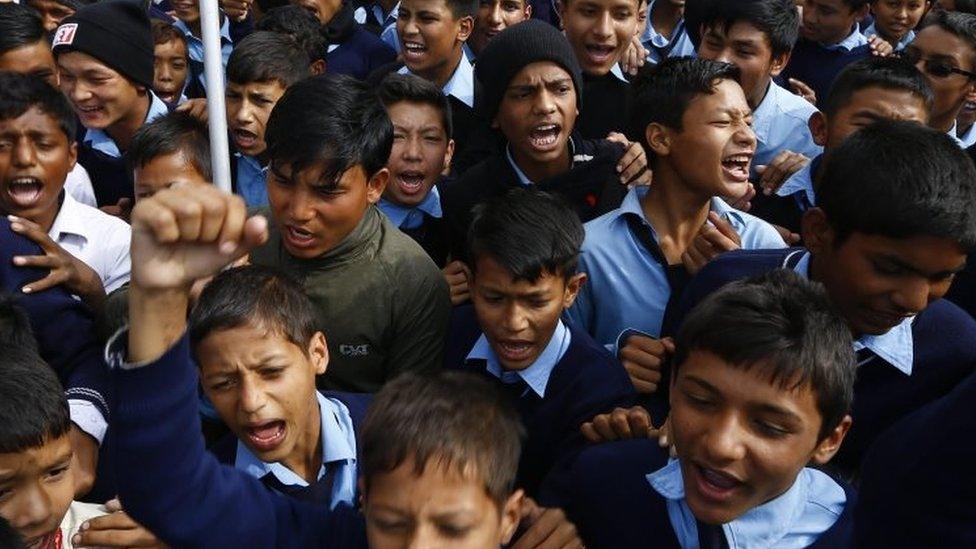
Child protesters in Kathmandu last week accused India of deliberately worsening the embargo
The government accuses India of deliberately worsening the embargo, but India denies this.
The blockade is being enforced while Nepal is still recovering from powerful earthquakes earlier this year which left up to 9,000 people dead.
In a stark warning, Unicef says supplies of vaccines and antibiotics in the country are now critically low - and the fear is that children could be the worst hit.
More than 200,000 families affected by the earthquakes are still living in temporary shelters at an altitude above 1,500m (4,920 ft) where weather conditions will be harshest this winter.
"The risks of hypothermia and malnutrition, and the shortfall in life-saving medicines and vaccines, could be a potentially deadly combination for children this winter," Unicef Executive Director Anthony Lake said in a media statement.
"During my recent visit to Nepal, I witnessed first-hand the precarious living conditions of many of the earthquake survivors. They could now be facing a new disaster - without adequate food, protection from the cold, or healthcare."
There are also fears that the rising dependence on firewood - triggered by the fuel crisis - is increasing indoor pollution, which in turn could lead to a rise in pneumonia cases.
Last year more than 800,000 children under five suffered from the condition in Nepal, Unicef says, and about 5,000 died.
Already stocks of the inoculation against tuberculosis have run out completely in regional medical centres.
The blockade along the border with India began in September.
Around 60% of Nepal's medicine is imported from India, along with large amounts of fuel, food and other supplies.
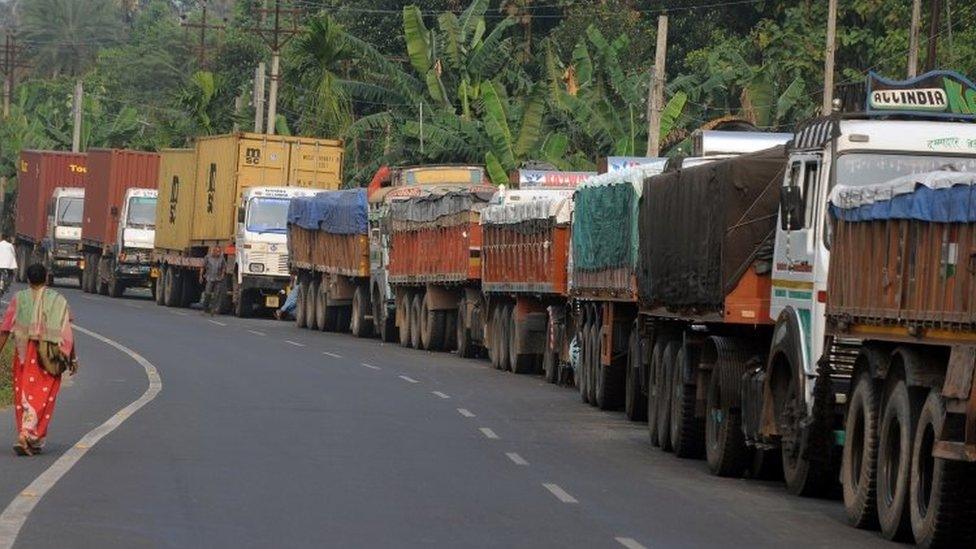
Shortages caused by the blockade have hampered efforts to recover from April's devastating earthquake
- Published23 November 2015
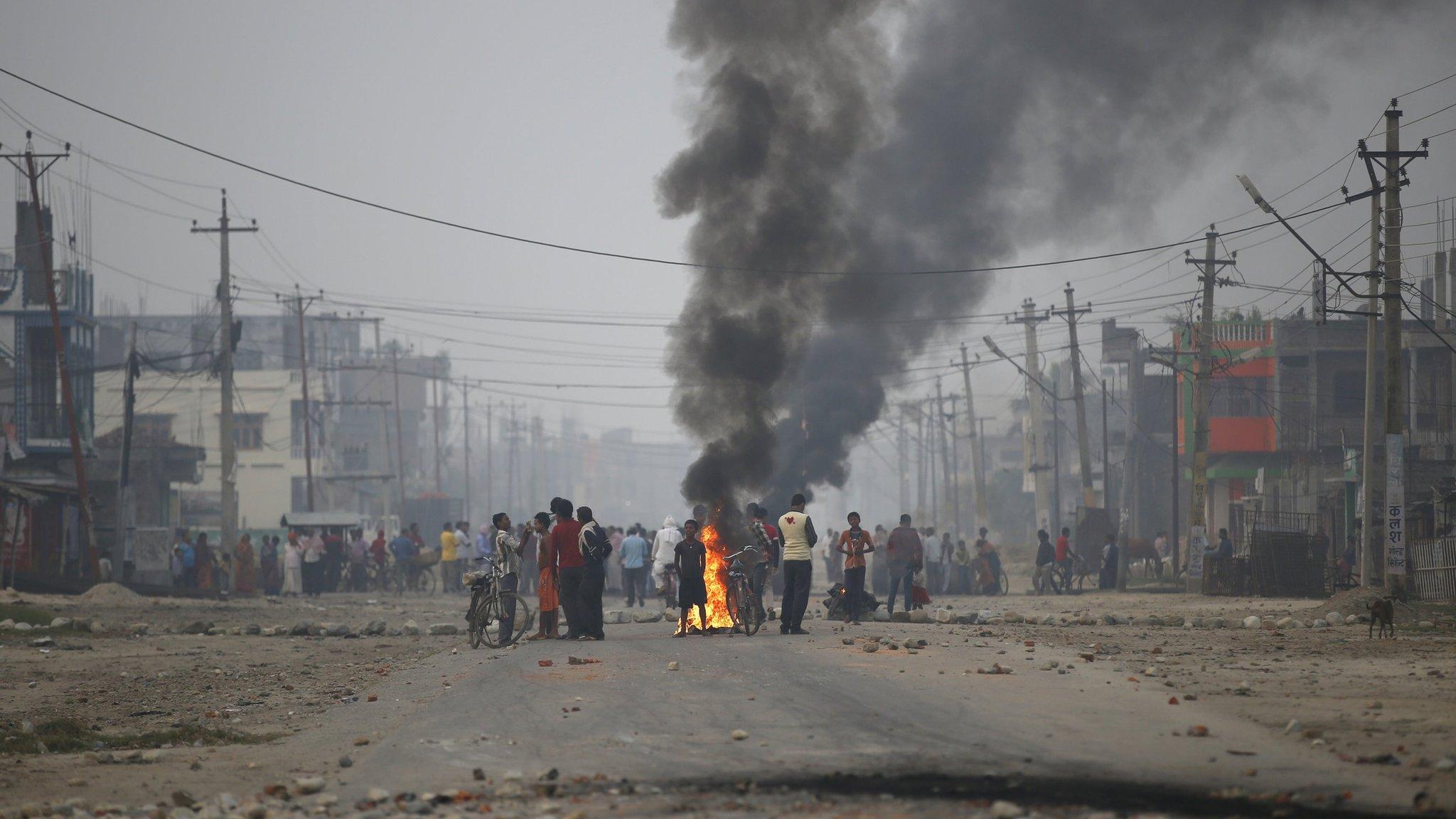
- Published18 November 2015
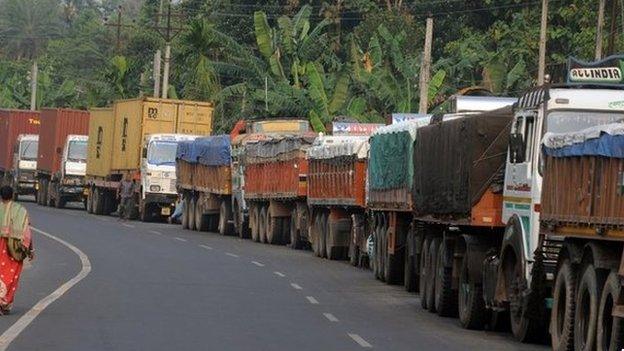
- Published22 September 2015
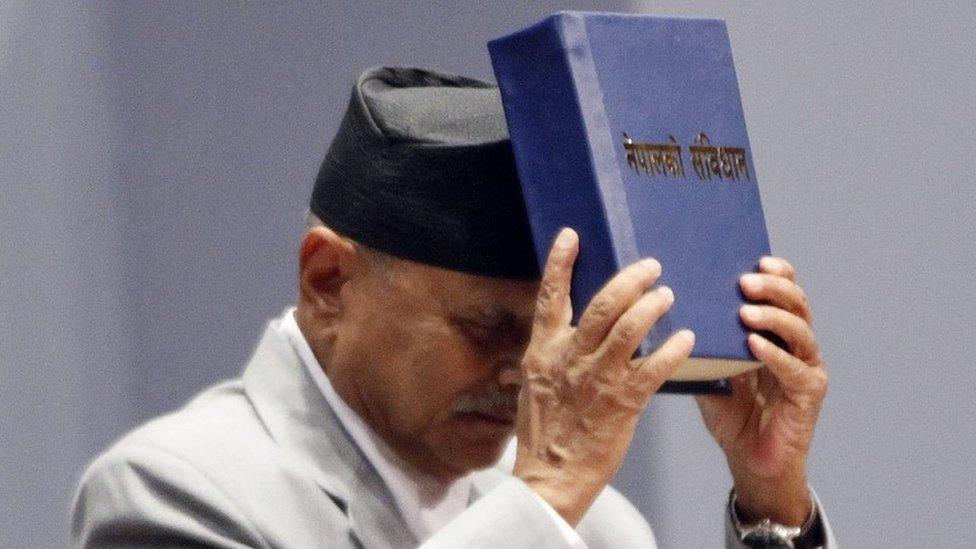
- Published7 October 2015
